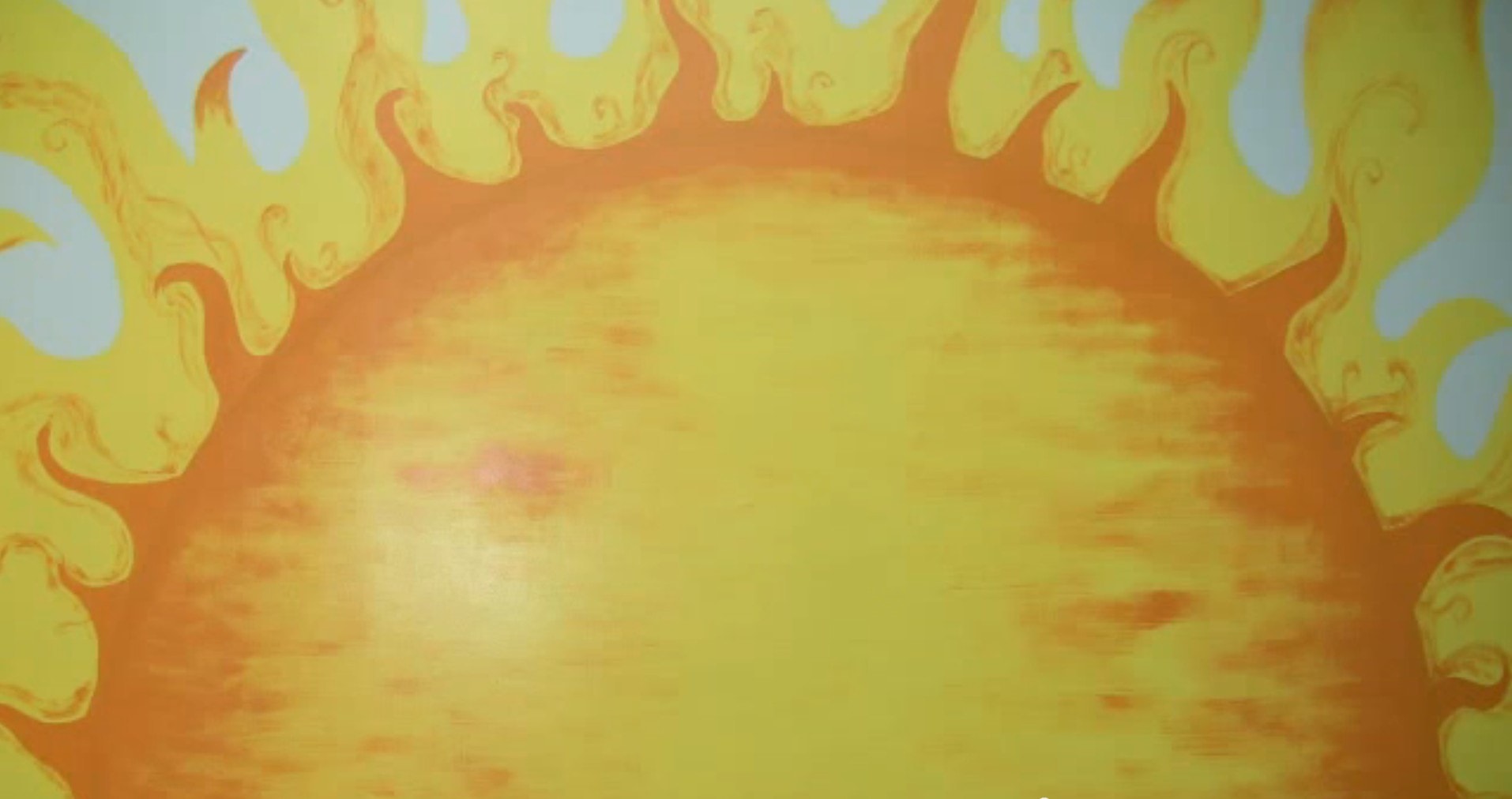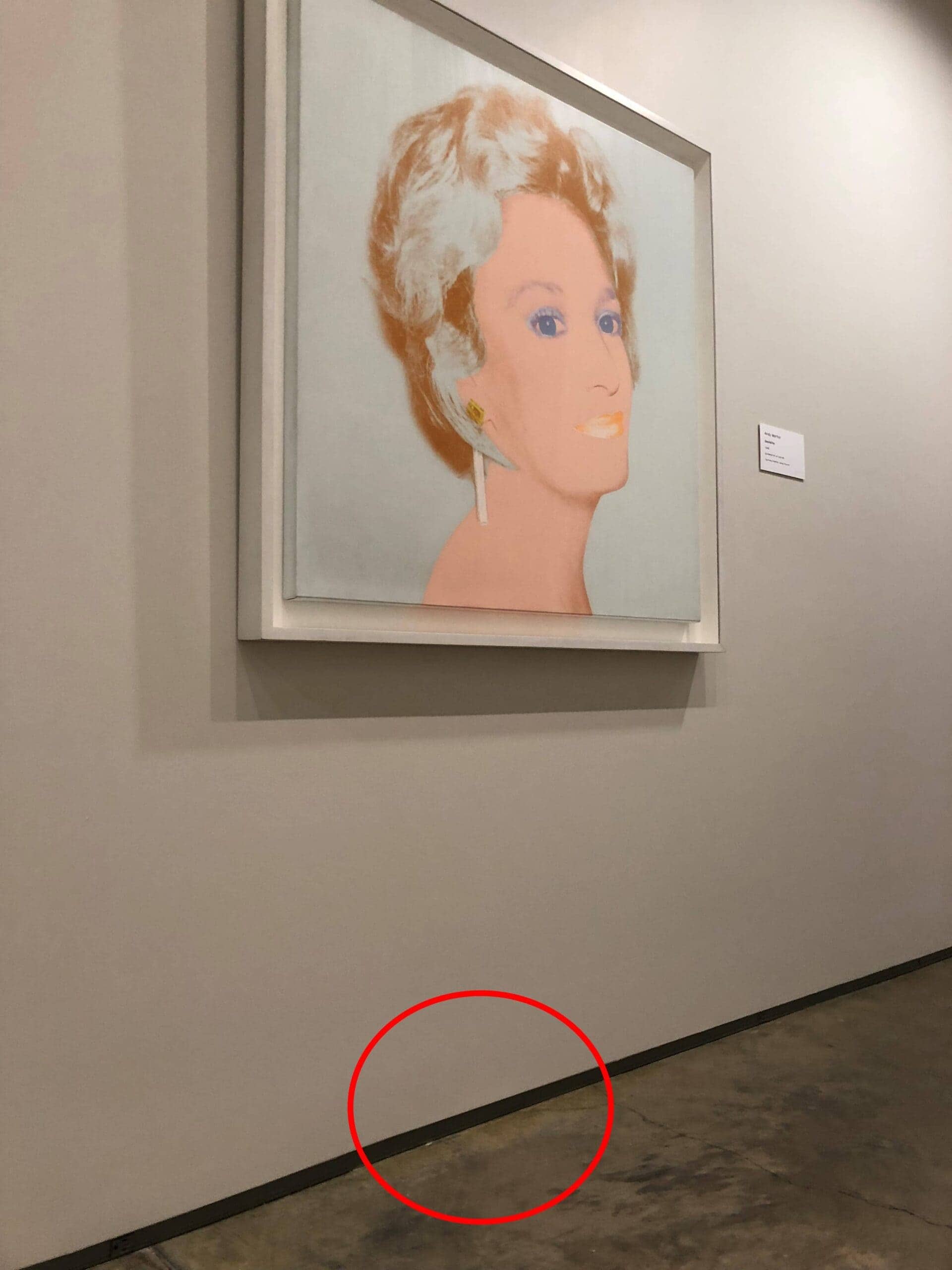Here’s a quick time-lapse about how to paint a large sun on the wall dating back to 2009. This is a very basic presentation of information, but somewhere, out there, among ALL the museums there is one that is wondering “How would we go about painting a nice big sun on the wall, I wish we could see one going up as a guide to demystify the process.”
The Dominion Solar Energy Exhibit at the Childrens Museum of Richmond opened November 18, 2009 and was the first exhibit families encountered as soon as they cross the bridge to enter the main exhibit floor. Children and their caregivers were drawn to a compelling interactive sensory airways exhibit, powered by solar panels on sky cubes above. A large mural of a stylized sun on the wall behind the exhibit emphasized the suns role in making the energy to power the exhibit.
Children and adults inserted brightly colored scarves into the action-filled exhibit that were immediately drawn in and traveled quickly in random paths through the clear tube maze. As visitors watched through the tubes to follow the path of their scarves, their eyes were drawn to the sky cube above to see the scarves exiting the exhibit and floating down to the floor. When they looked up, they saw one of the three sky cubes that support the photovoltaic panels that powered the exhibit, as well as provided additional power for the museum.
Beside the airways exhibit, a flat panel television interpreted the museums solar energy array on three of the museums five sky cubes for school age children and adults. The video described the process of harvesting the suns energy through photovoltaic panels, the conversion of that energy to electricity and how that power is making air move throughout the exhibit to propel the scarves to the exit above. In addition, visitors were able to follow the Kilowatt per hour trend to see how it fluctuates due to cloud coverage and the angle of the sun. Running on a continuous loop, the video could be quickly updated as necessary and allowed video presenters and their messages to be seen by more than 230,000 visitors per year.
By powering what was one of the Childrens Museums most interactive and popular exhibits, even very young children had a special connection to solar energy that they would not otherwise experience. In addition, the video interpretation provided more detail for adults and school age children, introducing the benefits of solar energy and bringing the concept out of the abstract and making it a real part of a fun and memorable experience.
[youtube id=”Tb2fPFsXUdE” align=”center” mode=”lazyload-lightbox” autoplay=”no” parameters=”modestbranding=1″ grow=”yes”]






Leave a Reply
You must belogged in to post a comment.